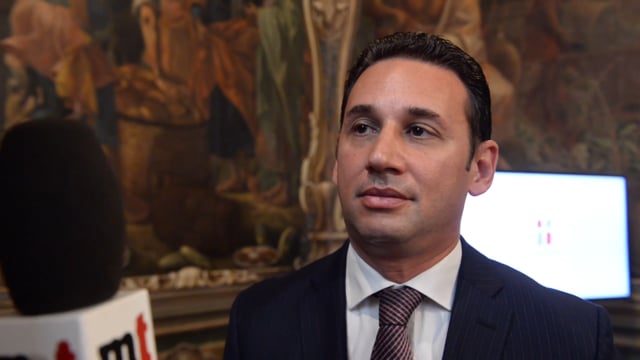[WATCH] Curia, Archdiocese register surplus in 2016 despite higher expenses
The archbishop’s curia registered a surplus of €752,000, while the Maltese archdiocese’s surplus was €1.1 million


In 2016, the Archbishop’s Curia registered a surplus of €752,000, while the Maltese archdiocese registered a profit of €1.14 million, the Administrative Secretary of the Archdiocese of Malta, Michael Pace Ross said on Monday.
During a presentation of the financial report of the Archdiocese for 2016, Pace Ross said that, because of the surplus, the Church could continue its pastoral work with children, young people, families, the elderly, people with disability and those in need.
Both the curia and the archdiocese registered an increase in donations, with the Curia benefitting substantially from a donation from the MMDNA. The donation was a result of the fact that MMDNA was disbanded last year and had distributed its remaining funds to various entities following a call for applications.
The curia registered an income of €7,454386 in 2016, up from €6,441,240 the previous year. Its expenses also increased by some €500,000. The source of income increasing most over the previous year was income from the curia’s properties which almost doubled, from €61,904 to €118,376 while the lion’s share of expenditure, €4.5million went to remuneration to priests and lay employees.
Pace Ross explained that the vast majority of the surplus - €460,703- was distributed to various church entities that carried out “social or charitable work” in the community in the form of subsidies.
The church’s various media arms and the Foundation for Theologicalstudies received the two largest subsidies. They benefitted from gains of €284,040 and €116,308 respectively.
The foundation, explained Pace Ross, provided help to theology students studying abroad, while the expenditure on media was essential to the survival of the various media organisations, including RTK, in what is a “very competitive” industry.
Turning to the archdiocese, Pace Ross said that operational income had increased by €1.83 million, however expenditure also increased substantially, by a margin of €3.43 million. A surplus was registered due to a “one-off” increase in capital gains from investments.
Pace Ross said the results showed that although income from collections and fundraising proved challenging, the shortfall was offset by income from donations. Moreover, he said that photovoltaic panels installed by parishes had also started “yielding gains”.
The largest increase in operational revenue was from the archdiocese’s property – a 45% over 2015.
The expenditure of all the entities of the Archdiocese, including parishes, increased by more than €3.4 million over the previous year, with a substantial amount of expenses once again going towards the remuneration of the diocesan clergy and salaries of lay employees.
The increase in expenditure was also due to revised salaries, new jobs in several homes for children, the elderly and for people with disability, and to expenses related to repairs and maintenance work on old buildings.






.jpg)
















